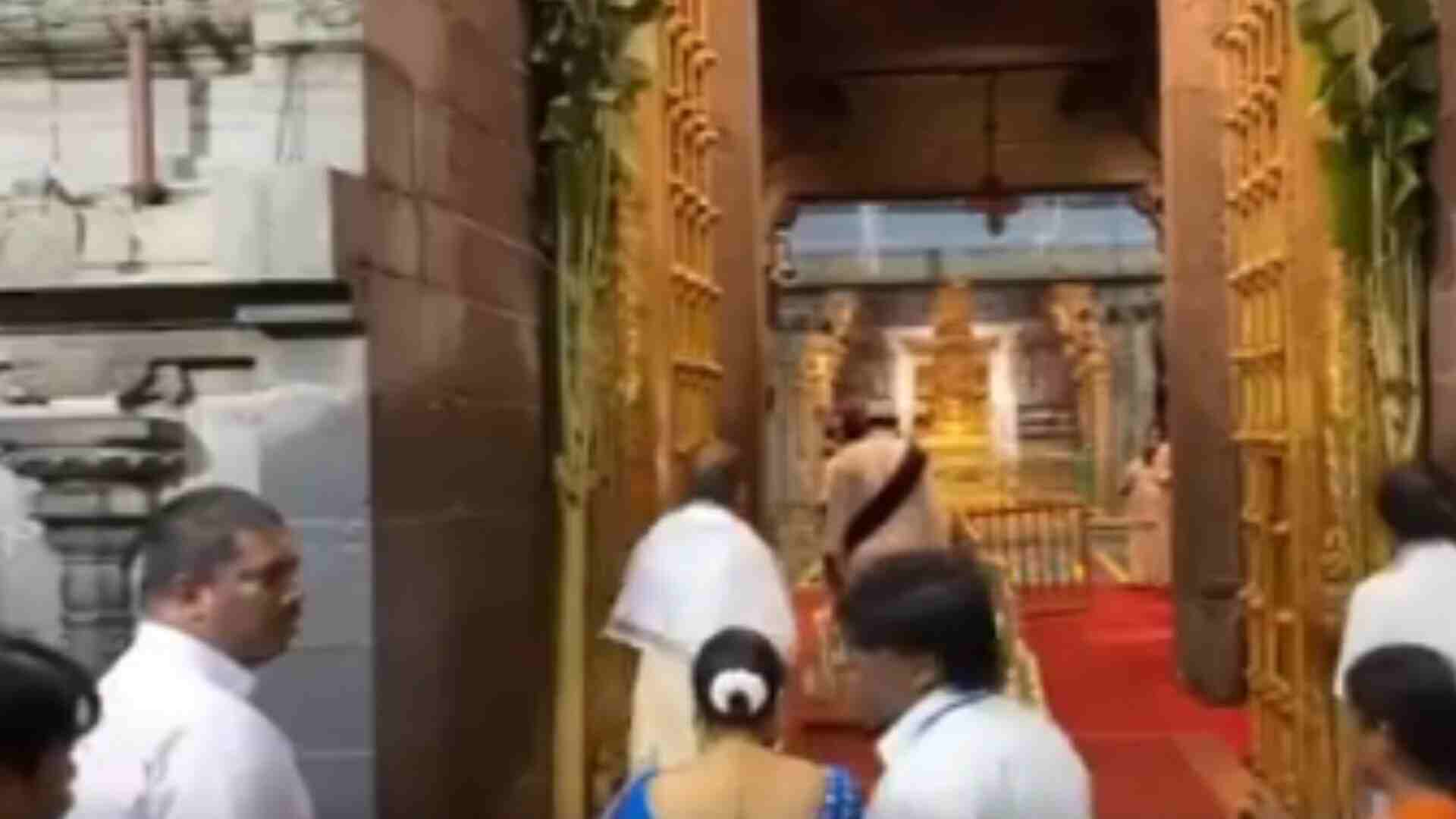A Shanti Homam Panchagavya Prokshana ceremony lasting four hours was conducted on September 23 to address alleged desecrations that took place during the YSRCP government’s tenure at the Tirumala temple. According to temple sources, the ritual started at 6 a.m. and ended around 10 a.m., aiming to seek forgiveness from Lord Venkateswara Swamy for supposed sacrilegious acts, including the use of animal fats in the preparation of the Tirupati laddus, which are sacred sweets.
#WATCH | Andhra Pradesh: TTD (Tirumala Tirupati Devasthanams) organised a Maha Shanti Homam in the wake of Laddu Prasadam row.
Executive officer of Tirumala Tirupathi Devastanam (TTD) Shamala Rao and other officials of the Board participated in the Homamam along with the… pic.twitter.com/Gkh7JFeljT
Related News— ANI (@ANI) September 23, 2024
Restoring Sanctity and Well-Being
TTD executive officer J Shyamala Rao stated that the purpose of these rituals is to eliminate negative effects and restore the sanctity of the laddu prasadams, while also promoting the well-being of devotees who worship at the temple.
Chief Minister’s Response
Andhra Pradesh Chief Minister Chandrababu Naidu previously announced the creation of a Special Investigation Team (SIT) to look into the alleged incidents. During a press conference at his residence in Undavalli, Naidu expressed that the public’s feelings were hurt following the news that animal fats may have been used in making the laddus. He stated, “An IG-level or above officer-manned SIT will be formed. It will probe all the reasons and misuse of power and report to the government. The government will take stringent action to avoid recurrences of laddu adulteration; there is no compromise.” Naidu emphasized that no one should play with the sentiments of the people.
Nationwide Impact: Mankameshwar Temple Responds
In light of the controversy regarding the alleged adulteration of the famous laddu prasad at Tirupati Balaji Temple, the repercussions are being felt nationwide. In response to these issues, the Mankameshwar Temple in Lucknow, Uttar Pradesh, has implemented a ban on market-bought offerings (prasad). Mahant Divyagiri issued an official notification instructing devotees to bring only homemade offerings or dry fruits for rituals conducted within the temple’s sanctum sanctorum.
According to this notice, devotees are now required to adhere to these new guidelines for their offerings. Devotees also opined that the yajna might purify the temple, emphasizing that it would be inappropriate to hurt the feelings of the millions of devotees who receive prasadam made from animal fat and fish oil.
यज्ञ से शायद मंदिर तो शुद्ध हो जाए। पशु चर्बी, मछली के तेल से बना प्रशाद ग्रहण करने वाले लाखों श्रद्धालुओं की भावनाओं को लगी ठेस ठीक नहीं होगी।#Tirupati pic.twitter.com/ctK8eEVNLF
— Mukesh Mathur (@mukesh1275) September 23, 2024







